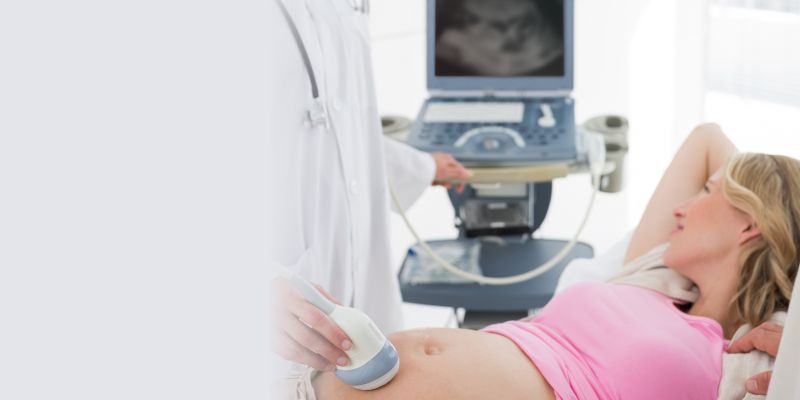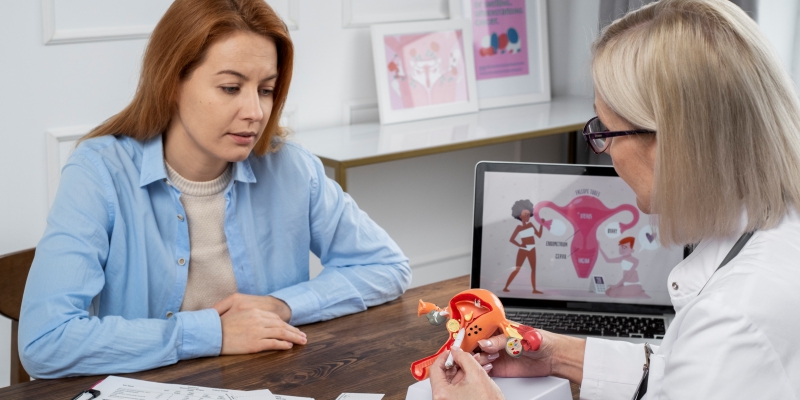
Handling Depression And Anxiety During Menstruation

Author: Dr. Shweta Nayak MBBS, DNB(OBG), MNAMS, CCGDM, KISAR Fellowship in Infertility, Fellowship in Basic Ultrasound
Consultant: Obstetrician & Gynaecologist at Motherhood Hospital Mysore
Most people who menstruate will experience some symptoms of Premenstrual Syndrome (PMS). Periods can cause plenty of uncomfortable symptoms. These symptoms vary from person to person, but they often extend beyond physical discomforts, like cramps, fatigue, and headaches.
Depression and other mood changes often show up in the days before your period starts, but they don't automatically disappear once it begins. They can linger for a few days, if not longer. Some people also experience depression after their period ends.
After ovulation, which occurs midcycle, the levels of the female sex hormones estrogen and progesterone begin to fall. Rising and falling levels of these hormones can affect brain chemicals called neurotransmitters. Serotonin and dopamine are examples of neurotransmitters which are both chemicals that influence mood, sleep, and motivation.
Low levels of serotonin and dopamine can cause the following symptoms, which are common with PMS:
- Sadness
- Anxiety
- Irritability
- Sleep problems
- Food cravings
When the levels of estrogen and progesterone begin to rise again a few days after the onset of a period, these symptoms often go away.
Track Your Symptoms
Keep track of your symptoms throughout the phases of your menstrual cycle. This may help you determine whether your symptoms of depression are connected to your cycle. Having a detailed log of symptoms from your last few menstrual cycles can also come in handy when you want to discuss depression before and during periods with your healthcare provider. Thorough documentation of your symptoms may make it easier to explain to your healthcare provider what you're experiencing.
Vitamins & Supplements
Some supplements may help relieve symptoms of depression before and during periods. It was found that a calcium supplement may reduce PMS-related tiredness, appetite changes, and depression. Great sources of calcium include milk, cheese, yoghurt, fortified cereals, orange juice, and leafy green vegetables. A daily calcium supplement is another way to get enough calcium.
Lifestyle Changes
You can make the following lifestyle changes to relieve the symptoms of depression before and during periods.
Exercise
Try to be physically active for a minimum of 30 minutes most days of the week. Even going for a daily walk through your neighbourhood might improve your symptoms of fatigue, difficulty concentrating, and depression with your period.
Nutrition
Try to resist the cravings that often accompany premenstrual syndrome. For some people, eating excessive sugar, salt, and fat can have a negative impact on mood. You don't have to avoid these foods completely, but strike a balance with vegetables, whole grains, and fruits. Avoiding alcohol, stopping smoking, and cutting back on caffeine may also help relieve symptoms of depression with periods and before it.
Sleep
Sleep for at least seven to eight hours per night, especially a week or two before your period. Not having enough sleep may make your depression worse during your period.
Stress
Unmanaged stress may worsen symptoms of depression during periods. Use relaxation techniques like meditation, yoga, mindfulness, and deep breathing exercises to calm your body and mind. Avoid emotional and stressful triggers whenever possible. Symptoms of depression before and during periods can often be managed with lifestyle changes and antidepressants.
At Motherhood Hospitals we have a team of experienced supers specialists backed by the latest infrastructure and facilities. We have the best gynaecologist in Mysore. We are experts in handling complex deliveries, gynaecological, and other surgeries, including various laparoscopic surgeries.
Do make an appointment with the best womancare hospital in Mysuru at a centre closest to you. Meet with our doctors, who will carry out the required investigations, diagnose the issue and recommend the most appropriate treatment, enabling you to lead an active life.
If you wish to get in touch with Dr. Shweta Nayak, please book your appointment here.
Related Blogs

Body Positivity Tips Post C Section (Cesarean Delivery)
Read More
Vaginoplasty: Procedure, Cost, Risks & Benefits, Recovery
Read More
The Digital Dilemma: Exploring the Medical Implications of Technology on Child Development
Read More
How To Relieve Menstrual Cramps? - 8 Simple Tips
Read More
Benefits of Consuming Folic Acid Tablets For Pregnancy/During Pregnancy
Read More
Navigating Radiology: Ensuring Safe Imaging During Pregnancy
Read More
Navigating Radiological Tests During Pregnancy: Ensuring Safety for Mother and Child
Read More
Decoding the Wonders of Pregnancy: When and Why Ultrasound Scans Take Center Stage
Read More
Decoding the Wonders of Doppler Ultrasound in Pregnancy: A Radiologist's Perspective
Read More
Understanding Cervical Cancer: The Crucial Role of Early Preventive Health Checks
Read MoreRequest A Call Back
Leave a Comment:
View Comments
Previous
Next
HELLO,
Stay update don our latest packages, offer, news, new launches, and more. Enter your email to subscribe to our news letter


 Toll Free Number
Toll Free Number








No comment yet, add your voice below!